|
|
|
|
The Biden administration’s plan to slash carbon emissions from the electricity sector is bringing attention to a technology we’ve all heard a lot about: removing CO₂ from the smokestacks of fossil fuel-fired power plants and pumping those captured gases underground. Tufts University researcher Soyoung Oh offers a valuable explanation of why this technique is not yet widely used, including its high costs and lack of infrastructure
for transportation and distribution of CO2. There’s another barrier to contend with, write two Arizona State University researchers: certifying these heat-trapping gases are stored safely and permanently.
A fascinating study published Monday on adverse events in gorillas’ lives offers some lessons for resilience in human children. A group of researchers studied the life histories of mountain gorillas in Rwanda to identify how individuals fared after traumas, such as losing a parent or extreme violence. What they found surprised them. “Animals that survived past the age of 6 did not have the shorter life spans commonly associated with early life adversity in other species,” they write. They suspect that gorillas’ food-rich habitat and cohesive social groups are crucial to their resilience. For humans, this finding implies that strong social and economic support
might help people avoid the long-term negative effects of adversity.
Another interesting study published this week tells the story of University of Florida researchers using DNA shed into the environment – known as environmental DNA – to study sea turtles. They discovered that fragments of free-floating human DNA out in the world can reveal a great deal, including genetic lineage, gender and health risks. In explaining their work, they note that the information available in humans’ environmental DNA raises a host of privacy and ethical questions that deserve attention from regulators.
Also in this week’s science news:
|

|
Martin LaMonica
Director of Editorial Projects and Newsletters
|
|

Natural gas power plants could find a lifeline in carbon capture and storage.
Vithun Khamsong/Moment via Getty Images
Soyoung Oh, Tufts University
Carbon capture and storage could keep fossil fuel power plants running under newly proposed federal emissions standards, but it faces high hurdles.
|
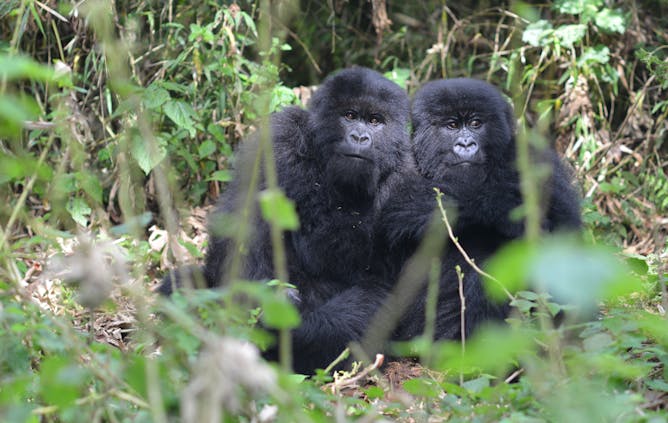
A lot of bad things can happen to young mountain gorillas in the wild.
Dian Fossey Gorilla Fund
Stacy Rosenbaum, University of Michigan; Robin Morrison, University of Exeter
In many animals, including humans, adverse events in youth have lasting negative health effects over the life span. But new research suggests something different is going on in mountain gorillas.
|
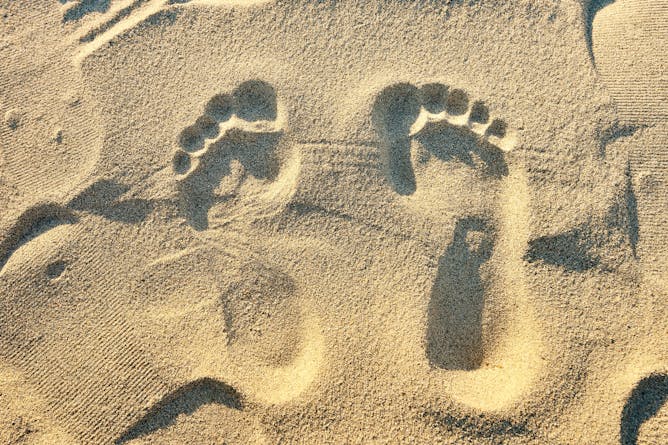
A casual stroll on the beach can leave enough intact DNA behind to extract identifiable information.
Comezora/Moment via Getty Images
Jenny Whilde, University of Florida; Jessica Alice Farrell, University of Florida
Environmental DNA provides a wealth of information for conservationists, archaeologists and forensic scientists. But the unintentional pickup of human genetic information raises ethical questions.
|
|
|
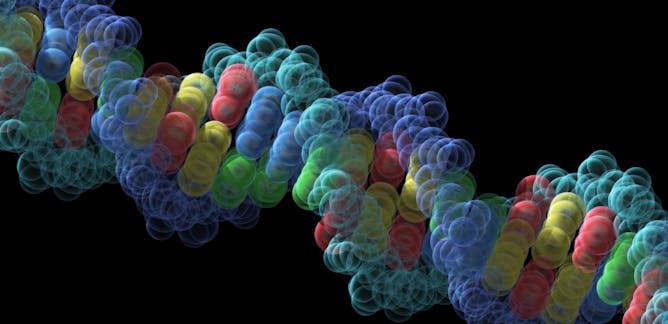
Clarice D. Aiello, University of California, Los Angeles
Studying the brief and tiny quantum effects that drive living systems could one day lead to new approaches to treatments and technologies.
| |
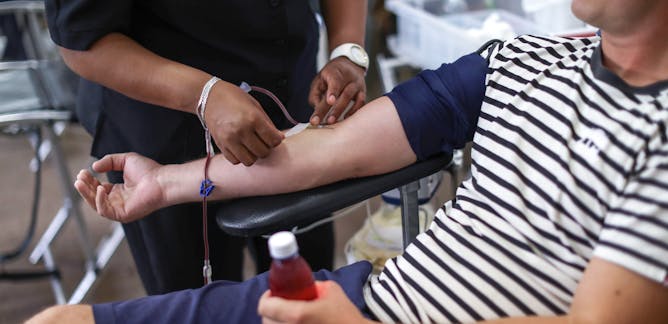
Ayako Miyashita, University of California, Los Angeles
In 1983, during the early days of the AIDS epidemic, the US Food and Drug Administration made the decision to ban gay men from donating blood. Now, 40 years later, it is dropping that rule.
|
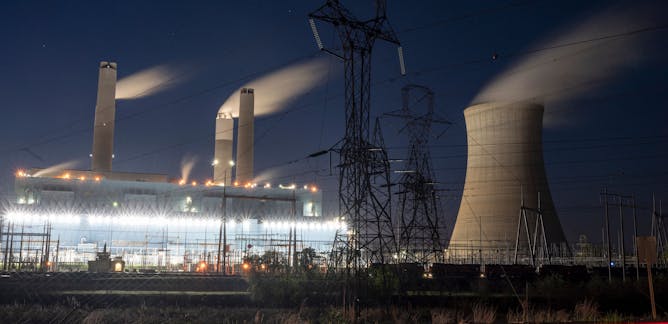
Jennifer K. Rushlow, Vermont Law & Graduate School
After the Supreme Court overturned the Obama administration’s strategy for reducing power plant carbon emissions in 2022, the Biden administration is taking a narrower but still ambitious approach.
| |
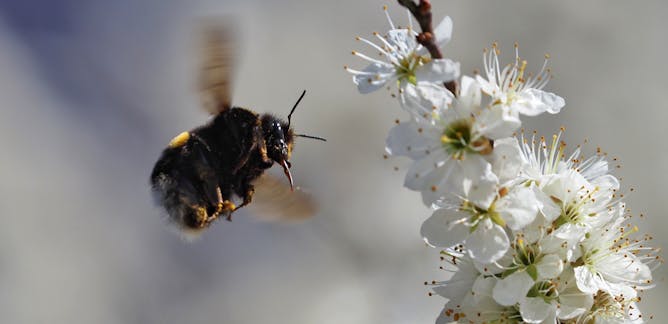
Stephen Buchmann, University of Arizona
Scientists are learning amazing things about bees’ sensory perception and mental capabilities.
|
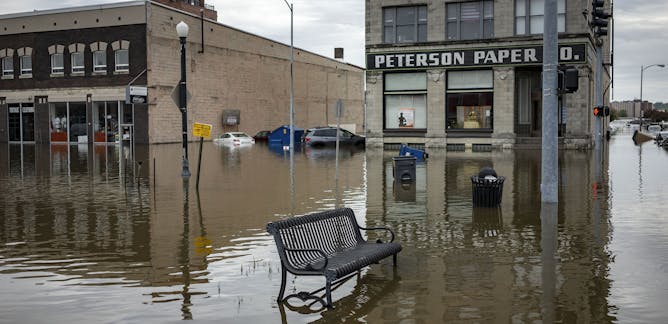
Antonio Arenas Amado, Iowa State University; Lu Liu, Iowa State University
Flood risks are rising, yet communities may spend millions of dollars in federal infrastructure funding on systems that aren’t built to handle them.
| |
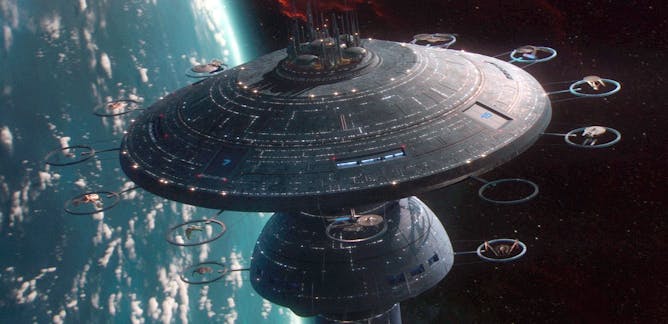
Richard Forno, University of Maryland, Baltimore County
‘Star Trek: Picard’ is set 400 years in the future, but, like most science fiction, it deals with issues in the here and now. The show’s third and final season provides a lens on cybersecurity.
|
|
|
|
|
-
David Verhoeven, Iowa State University
While mRNA vaccines are designed to last longer in the body than mRNA molecules typically would, they are also tested to ensure they are eliminated from livestock long before milking or slaughter.
-
Stephanie Arcusa, Arizona State University; Klaus Lackner, Arizona State University
Fossil fuel power plants can avoid most emissions by capturing carbon dioxide and pumping it underground. But to be a climate solution, that carbon has to stay stored for thousands of years.
-
Amanda Mascarelli, The Conversation
With the emergency phase of the COVID-19 pandemic in the rearview mirror, at least for now, we look back on a handful of stories that provided sharp insights at key moments in the pandemic.
-
Natalie Bursztyn, University of Montana
Some rocks will burn, and others will melt, depending on how they were formed and what minerals they contain.
|
|
|
| | |
| | |
| |
| |
| |
|
|
|